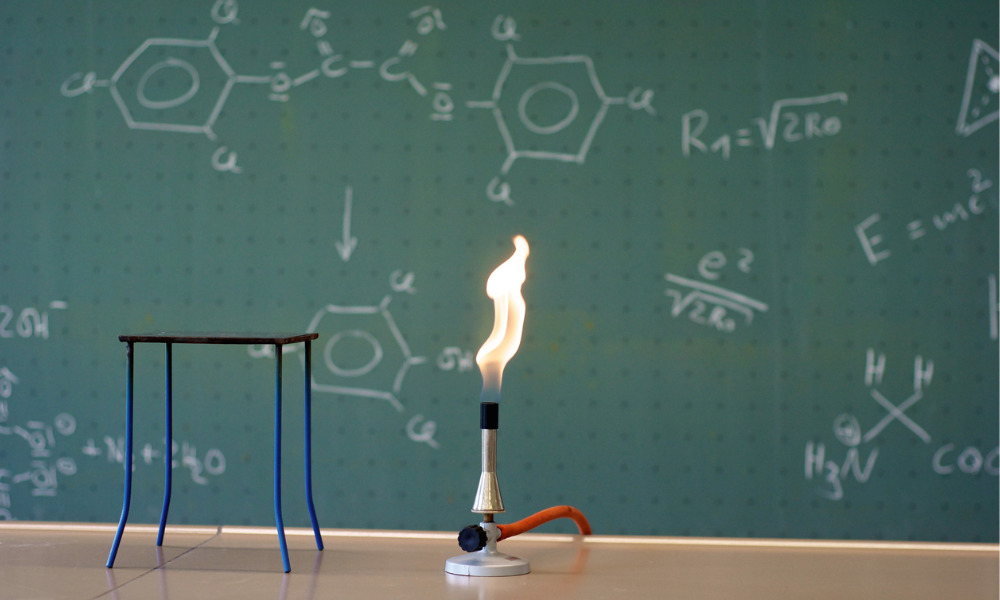Physics experiment gone bad highlights challenges for workers facing redundancy

I’m happy to say my teenage son has picked up his mother’s sarcastic humour. I know it’s not for everyone but it’s a family trait I share with my brothers and we embrace it dearly.
So I do enjoy my son’s sardonic observations (“I feel like a puppy that’s been abandoned at birth,” after studying for a math test or “Ma, I could have been brilliant, if you’d raised me right.”)
Today he came home with an amusing anecdote about one of his classes. It was physics, his teacher was conducting an experiment that involved heating up liquid in a beaker over a Bunsen burner.
The difference today was there was an official observer in the classroom, evaluating the teaching to determine if the class content could be taught online. For those unaware, Ontario is pushing to expand mandatory high school e-learning.
Unfortunately, the beaker was cold, the water heated up too quickly and the glass container exploded.
“Let’s see a computer do that,” my son said to the class, apparently causing both the teacher and the evaluator to smile.
It made me laugh, but it was also a sad story. For all the talk of the benefits of AI, automation and machine learning, imagine being the teacher trying to prove their worth while being so acutely observed at work.
My son said the teacher was particularly animated today, more so than usual. And who wouldn’t be, in that situation?
Interestingly, a survey last year found 95 per cent of 6,087 students surveyed disapproved of the e-learning mandate introduced by the provincial government. My son certainly opposes the change, as do I. Having an actual teacher present in the classroom makes such a difference when it comes to basic learning, learning difficulties, immediate support or essential human behaviour such as humour and compassion.
Contradictory opinions
This preference for a human presence is mirrored by a recent survey in the United States where 55 per cent of respondents to a survey by MindEdge Learning don’t think that robots are better workers than humans, while 57 per cent feel that robots and advanced automation are bad for workers.
On the other hand… three-quarters (76 per cent) of workers in workplaces where advanced technology has been introduced say the automation has made their jobs easier, according to the survey of 1,017 U.S. workers.
And more than two-thirds (69 per cent) in recently automated workplaces say that it has made a positive impact on overall workplace morale. Sixty-five per cent say that technology can free up human workers for more interesting work.
And only 29 per cent are concerned about being replaced by these technologies in the next five years, while 47 per cent are not at all concerned.
It would appear the impact of the various advanced technologies is not fully known or appreciated. Many people are OK with the changes when they have a positive impact, but it’s the unknown that’s seen as scary and unwanted.
For that physics teacher, however, the impact was clear. And the future didn’t look so bright.




